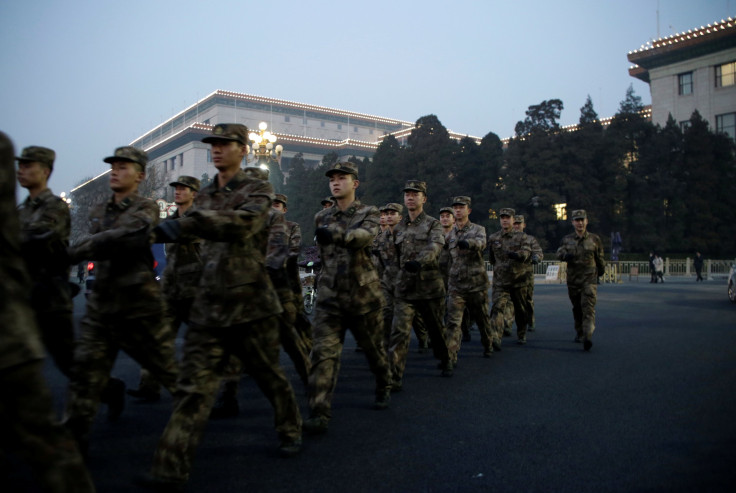China In The Middle East: Chinese Troops Patrolling Afghanistan For Terrorists After US Exit

China has reportedly sent ground troops to work with Afghanistan’s forces to fight terrorism near the neighbors’ shared border and the United States military evidently has no problem with the recent movements, Military Times reported Sunday. Such movement could signal China intends to take on a “greater role” as U.S. and NATO forces exit the war-torn country.
The development comes at a strained time in China and U.S. relations. New President Donald Trump has repeatedly chided China over his perception that it has not helped fight against North Korea’s growing missile and nuclear defense programs and his administration has also questioned China’s building of artificial islands in the South China Sea.
Reports about China’s presence in Afghanistan first began to surface late last year when military vehicles were spotted in the Little Pamir region, located in the northeast. China denied last month that Afghani and Chinese forces were patrolling inside the Middle Eastern nation beyond the nations' shared 50-mile border.
"This is law enforcement bodies from China and Afghanistan, in accordance with a bilateral agreement on strengthening border law enforcement, conducting cooperation along the border so as to jointly carry out counter-terrorism and to fight against cross-border crime," China’s Defense Ministry spokesman Ren Guoqiang told reporters in February, according to Reuters.
Several requests for comment from U.S. and Afghanistan officials about China's new role fighting militants were not answered, and the Pentagon only issued a brief statement that acknowledged China’s movements. “We know that they are there, that they are present,” a Pentagon spokesman told Military Times.
Former President Barack Obama had vowed that by the end of 2016, the U.S. would have only 5,500 troops in Afghanistan. Then in July of last year he stated that 8,400 would remain, according to NPR.
© Copyright IBTimes 2025. All rights reserved.





















